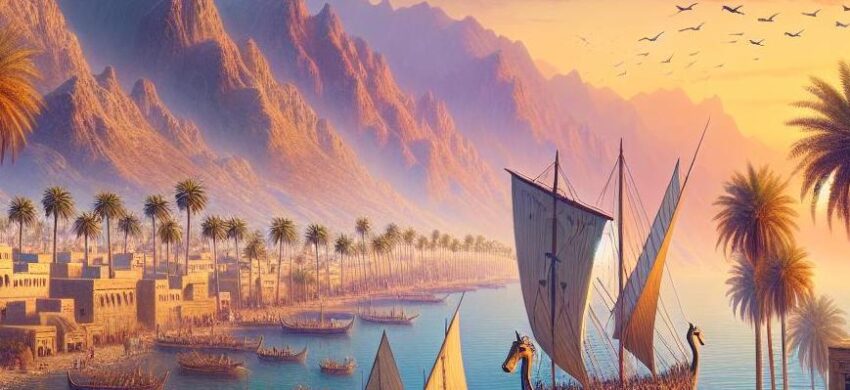The Phoenicians, an ancient seafaring civilization, held significant sway in the Mediterranean basin around 1550-300 BCE. Originating from what is now known as Lebanon, these individuals, though politically fragmented, were linked by language, culture, and the boat-filled sea.
The community’s growth was fuelled by its strategic position and abundant natural resources, notably Cedrus libani or Lebanese cedar, coveted for construction, notably in shipbuilding. This geographical advantage coupled with marine expertise, positioned them as the preeminent maritime traders of their time, connecting the ancient world, from Egypt to Greece, and even Spain.
Their societal influence was vast. They pioneered the alphabet’s creation that formed the basis for modern Western scripts. Interestingly, the Greek Alphabet evolved from the Phoenician one, showcasing their cultural influence. Their rich marine traditions led to the establishment of colonies including the notable Carthage, further spreading their influence.
As skilled metallurgists, they refined glass-making and purple-dye production from the Murex snail, a symbol of royalty in ancient times. To sum, their acumen for trade, navigation, and innovative contributions to culture and industry, alongside their seafaring legacy, deeply influenced the ancient world.
#1. Question text: Where did the Phoenicians originate from?
D is the answer. The text mentions that the Phoenicians originated from what is now known as Lebanon.
#2. Question text: Which natural resource did the Phoenicians notably use for construction and shipbuilding?
B is the answer. The text explains that the Phoenicians used Cedrus libani or Lebanese cedar for construction, particularly in shipbuilding.
#3. Question text: Which of the following civilizations did the Phoenicians not have trade connections with according to the text?
D is the answer. The text specifies that the Phoenicians connected the ancient world, from Egypt to Greece, and even Spain. It does not mention China.
#4. Question text: How did the Phoenicians influence the Greek culture?
C is the answer. The text states that the Greek Alphabet evolved from the Phoenician one, showcasing the Phoenicians’ cultural influence.
#5. Question text: What does the Murex snail symbolize in ancient times?
B is the answer. The Murex snail is mentioned in the text as a symbol of royalty in ancient times.
#6. Question text: What were the Phoenicians skilled at, apart from trading and navigation?
D is the answer. The text mentions that in addition to their acumen for trade and navigation, the Phoenicians were skilled metallurgists.
 |
 |





